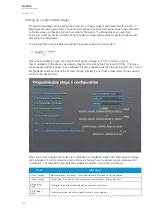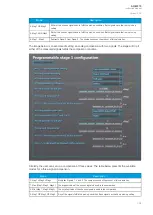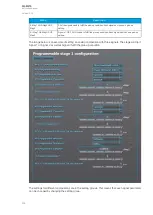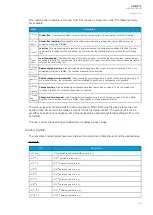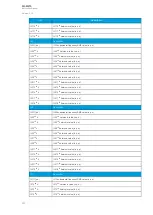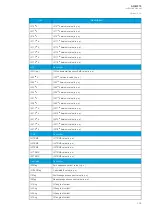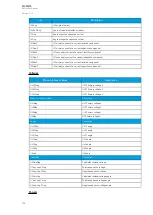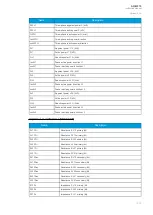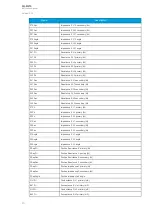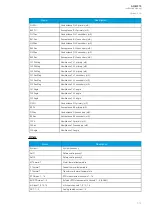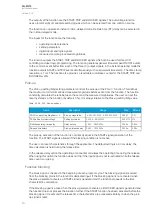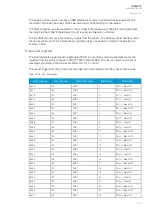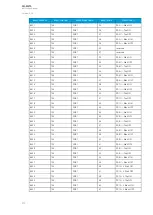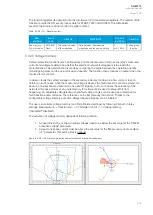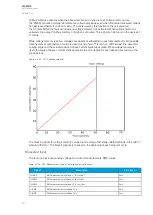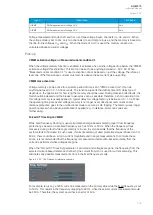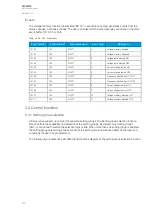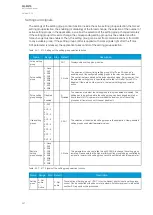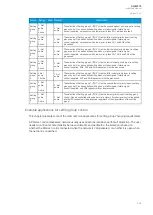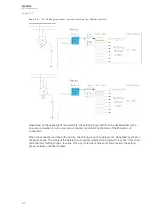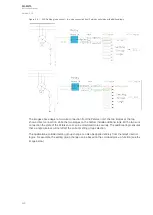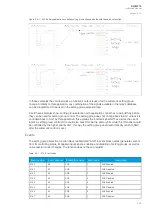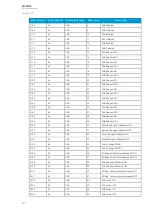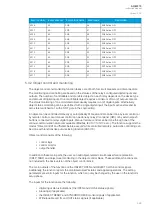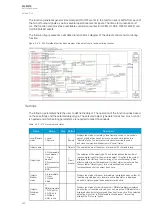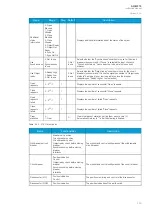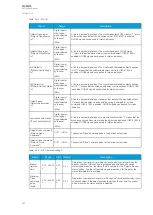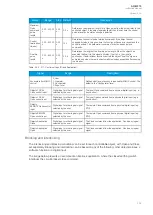
Voltage memory activates when the above-mentioned criteria are met. Voltage memory uses
the "VMEM activation voltage" parameter as voltage amplitude even when the actual measured voltage
has decreased below it or close to zero. The angle used by this function is the one captured
the moment before the fault occurred and voltage memory was activated. When voltage memory is
activated, the output "Voltage memory on" signal is activated. This signal can be found in the device's I/
O matrix.
While voltage memory is active, voltages are absent and therefore angle measurement is not possible.
Healthy state angles (before a fault) are used during a fault. This is why a drift between the assumed
voltage angle and the actual measured phase current angle takes place. While voltage memory is
used, the angle of phase currents drifts approximately one degree for each passing second (see the
graph below).
Figure. 5.3.29 - 197. Voltage angle drift.
The blocking signal for voltage memory can be found among other stage-related settings in the tab
VT
Module (3U/4U) 1. The blocking signal is checked in the beginning of each program cycle.
Measured input
The function block uses analog voltage and current measurements' RMS values.
Table. 5.3.29 - 208. Measurement inputs of the voltage memory function.
Signal
Description
Time base
IL1RMS
RMS measurement of phase L1 (A) current
5ms
IL2RMS
RMS measurement of phase L2 (B) current
5ms
IL3RMS
RMS measurement of phase L3 (C) current
5ms
U
1
RMS
RMS measurement of voltage U
1
/V
5ms
U
2
RMS
RMS measurement of voltage U
2
/V
5ms
A
AQ
Q-M215
-M215
Instruction manual
Version: 2.04
317

